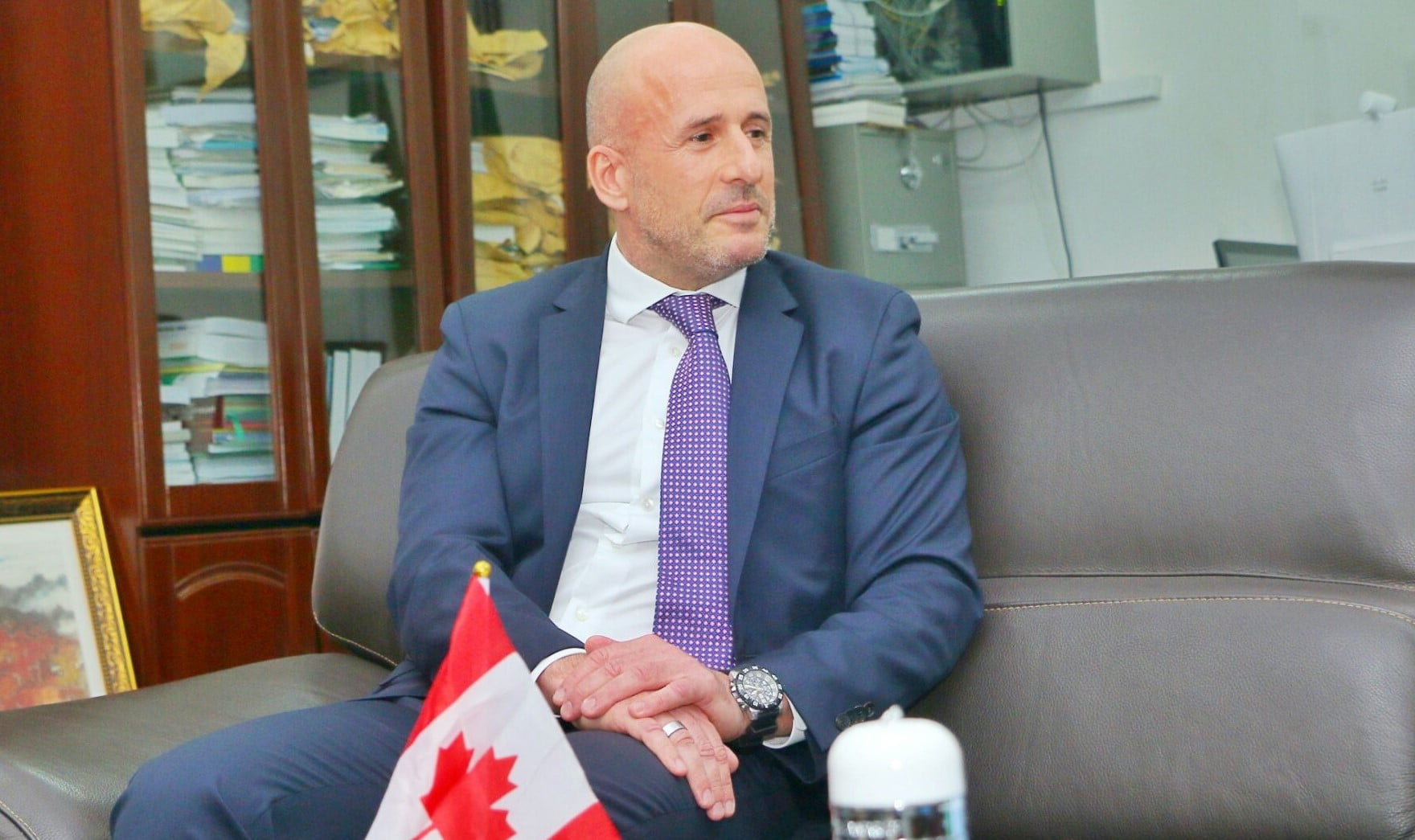 •NBA pledges to partner stakeholders on women advancement
•NBA pledges to partner stakeholders on women advancement
•Rights lawyer, ActionAid seek better deal for females
•Delegation urges transparent negotiations on STEM education support
As the 2023 International Women’s Day (IWD) held yesterday, Canadian High Commissioner to Nigeria, James Christoff, has said Nigeria is facing an institutionalised Sexual and Gender-Based Violence (SGBV) crisis.
He spoke yesterday in Abuja during presentation of key findings of the second phase of the Galvanising Mass Action Against Gender Based-Violence in Kano State (GMAA-K) project, implemented by a civil society organisation, Connected Development (CODE).
According to the envoy, IWD is a reminder that women, from all ages and walks of life, have a place in every aspect of society, including economic, social and democratic spheres.
He observed that certain groups, such as women with disabilities, are at even greater risk to experience gender-based violence.
In his remarks, Chief Executive Officer of CODE, Hamzat Lawal, recalled that Nigeria ranked 123 out of 146 countries on Global Gender Gap Index of 2022.
He said SGBV was widespread in the country, with 30 per cent of women aged 15 to 49 reporting experiences of sexual abuse, adding that 43 per cent of girls are married off before age 18, and 17 per cent married off before they turn 15.
He said for the GMAA-K project, CODE trained over 30 gender advocates, who later tutored community members and leaders within three settlements in Kano.
In his recommendations, Lawal called on the state government to focus exclusively on the VAPP/penal code amendment and CP bills at the Kano House of Assembly.
IN a related development, Nigerian Bar Association (NBA), yesterday, pledged to work with relevant stakeholders for formulation of innovative policies and practices to advance females.
In a statement, NBA President, Yakubu Chonoko Maikyau, said the association would partner with government to ensure that laws and policies reflect gender equality and equity.
“The Constitution of the Federal Republic of Nigeria prohibits discrimination against people on the basis of sex, among other things, thus granting everyone equal status before the law,” he stressed.
Maikyau added that NBA would collaborate with national and international development agencies to check exploitation of women and guarantee their continued participation in society as major stakeholders.
Lauding this year’s theme, “DigitAll: Innovation and Technology for Gender Equity,” the NBA boss observed the topic had given the world a veritable platform to assess and re-assess how to maximise use of digital technology to bridge the gender gap.
“The next global agenda should, therefore, put in place developmental policies and pragmatic mechanism to accelerate equality and equity with the aid of technology,” he said.
Maikyau celebrated the female pioneers in the legal profession for shattering the ceiling in a hitherto male-dominated sphere.
BESIDES, human rights and constitutional lawyer, Angus Obinna Chukwuka and ActionAid Nigeria, yesterday, sought better deal for women.
Chukwuka, particularly, charged men to respect female rights and encourage them to succeed.
Women, he said, should never compete with the men folk or challenge them unnecessarily.
Chukwuka added that women liberation movements in African must finetune strategy to encourage love and harmony.
ActionAid Nigeria, on its part, appealed to the three tiers of government to implement legislative reforms geared at promoting citizens from technology-facilitated gender-based violence (TFGBV).
It also charged government to explore impact of digital gender gap.
The Country Director, Ene Obi, while speaking in Abuja, acknowledged aptness of this year’s theme against backdrop of rising violence against women and girls, including TFGBV, as they threaten progress of gender equality efforts in Nigeria.
She quoted a survey by the Ministry of Women Affairs, indicating that 28 per cent of women and girls, between ages 25 and 29, have experienced different forms of gender-based violence (GBV).
Obi pointed out that with the digital age and emergence of technology, the Internet has become a tool for GBV reportage and response but also an avenue to perpetrate different forms of GBV among women and girls in the country.
ALSO yesterday, the Nigerian delegation to United Nations 67th Convention on the Status of Women (CSW67th) in New York canvassed transparency in negotiations for Science, Technology, Engineering and Mathematics (STEM) education support.
Team leader and Minister of Women Affairs, Pauline Tallen, said it was important for negotiations to be transparent, with focus on fundamentals of capacity building, increased official development assistance, improved STEM education, prioritisation of gender financing, technical support to national efforts at providing access to women and girls on innovation and technological change as critical elements in efforts towards empowering females.
The minister, in a statement by Director of Press in the ministry, Olujimim Oyetomi, noted that given the positive impacts of innovations and technological change on women and girls, it was important for development partners in Africa to prioritise and fulfil their financial and capacity building commitments in gender equality and empowerment of women and girls so that no one is left behind in development strategies and opportunities in Information and Communications Technology (ICT).
Tallen, who explained that “for the first time, the Nigerian government has adopted a gender-perspective budget approach in its fiscal plans, policies and projects, added: “This means that more than ever before, women and girls’ issues have come to the fore in our national development plans, including that of those living with disabilities. This has led to significant efforts in the roll-out of joint programmes in national budgets, ICT education, agriculture, health and nutrition, environment, security architecture, sports, humanitarian support, justice system and other sectors to equip women and girls with necessary skills and tools to effectively participate in national development.”
She said the efforts are hinged on the 35 per cent Affirmative Action principle in the Revised National Gender Policy 2021-2026.






